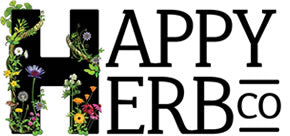Tinctures are concentrated forms of medicinal herbs, made by extracting the active constituents with a mixture of water and alcohol. This is the most common form of herbal medicine dispensed by herbalists and naturopaths, and although quite easy to make at home, people rarely do this.
We don't recommend to people that they make their own tinctures - they can be complicated, so this information is largely included for your interest.
Another thing to keep in mind is that it is easy to take too much of a medicinal plant when it is in a tincture form.
To make a tincture:
- Put about 120g of finely-chopped, dried plant matter into a large glass jar.
- Pour half a litre of 50% alcohol (some brands of triple-distilled vodka are this strong, otherwise get the strongest clear alcohol you can find) over the plant matter, close lid tightly and shake well.
- Keep the container in a dark place for 2-6 weeks (6 is best, but 2 is ok if needed), and shake periodically.
- After the allocated time, strain the tincture through a muslin cloth or fine mesh strainer. Squeeze out the excess liquid from the herb matter. Discard the plant matter and bottle the tincture in a dark glass bottle.
- As tinctures are much stronger than infusions or decoctions, much smaller doses are required, often only 15 drops or 1-2mls twice a day.
- A good way to take tinctures is to put the dose into a cup of boiling water, as much of the alcohol is evaporated in this way.
- Interestingly, research has often shown that tinctures are most effective when started on a new moon and strained/finished on a full moon!







